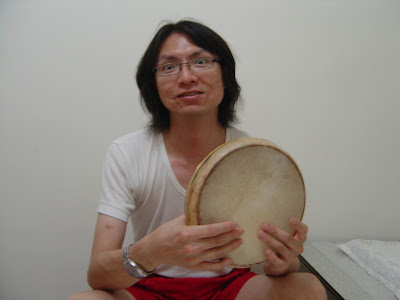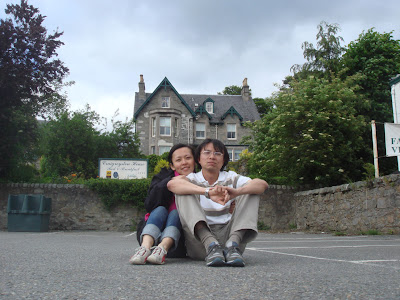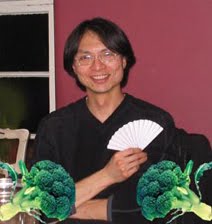
(I don't think I'm ready to present a demo, so forget about this silly still image and click the small viewer below for a video clip of a virtuosic performance led by a Uzbek doira artist Abbos Kosimov.)
While reading avidly more literature on Central Asian music and listening to all the recordings available in the NTU Library, apart from dreaming of flying to Samarkand, I am also thinking about obtaining one or two pieces of musical instruments.
Although what I really want is a dutar (long-necked two-stringed lute), considering not only the presumably high price of the instrument itself but also the ridiculously exorbitant shipping fees which would be charged by sellers on eBay, Yahoo Shopping or whatever online auction site, I turn to something lighter, smaller and easier to deliver and, above all, affordable, such as a doira (uzbek frame drum with metal jangles attached to the wooden rim ) or a timur komuz (Kyrgyz Jew's harp).
Very luckily, yesterday I found the doira at Silk Road Bazaar, a special outdoor event of Taipei Traditional Arts Festival. Without hesitation, just like a young boy captivated by a fancy toy, I called Fanne, who was trying to get some chilled bottled water at a convenience store nearby, to come and pay for me.
It's quite a good deal in Taipei to pay NTD 650 (roughly just over USD 21) for a medium-sized hand-made doira, made of genuine wooden rim and calfskin, in comparison to whatever amount for a similar item plus USD 60 for postage. And above all, I've got a new instrument to practice and play with.


(Doira, four different sizes, images from the website of Abbos Kosimov)






